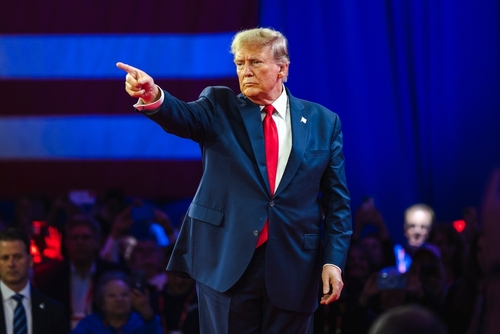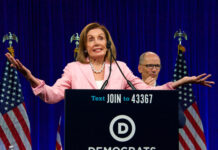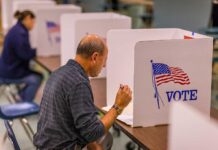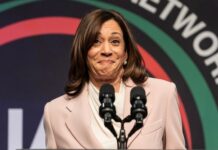
Former Democratic congresswoman and 2020 presidential candidate Tulsi Gabbard has thrown a major curveball into the 2024 presidential race by endorsing Republican frontrunner Donald Trump. In a move that caught many political analysts off guard, Gabbard, who left the Democratic Party in 2022, declared her support for Trump during a rally in Manchester, New Hampshire, on Tuesday, August 27, 2024. This endorsement marks a significant shift in the political landscape as Gabbard, once a rising star in the Democratic Party, now aligns herself with a candidate whose policies starkly contrast with the values of her former party.
Gabbard's endorsement of Trump comes as no surprise to those who have followed her political evolution over the past few years. After leaving the Democratic Party, Gabbard became an independent, frequently criticizing the Biden administration and the Democratic establishment for what she sees as their failures in both domestic and foreign policies. During her speech in Manchester, Gabbard praised Trump as a leader who "puts America first," and criticized President Biden for leading the country down a "dangerous path."
I was a Democrat for over 20 years. Today, I endorsed Donald Trump for President. WATCH to hear why: pic.twitter.com/lwA8FYFx8h
— Tulsi Gabbard 🌺 (@TulsiGabbard) August 26, 2024
The endorsement is a significant boost for Trump as he seeks to solidify his base and expand his appeal to independents and disaffected Democrats. Gabbard’s support could be particularly influential in battleground states where her populist message and foreign policy critiques resonate with voters who feel abandoned by the political establishment. Trump, who has consistently led in GOP primary polls, welcomed Gabbard’s endorsement, calling her a "courageous patriot" and a "fighter for the American people."
Gabbard's decision to endorse Trump is also notable given her past criticism of the former president. During her 2020 presidential campaign, Gabbard often took aim at Trump’s foreign policy, particularly his handling of the conflict with Iran and his administration’s stance on Syria. However, Gabbard’s shift towards Trump appears to be rooted in her broader disillusionment with the Democratic Party, which she accuses of being out of touch with the American people and overly focused on identity politics.
🚨BREAKING: President Trump enlists the help of Tulsi Gabbard for debate prep against Kamala Harris 🔥🔥🔥
Tulsi ended Kamalahala's campaign while CNN just DESTROYED Kamala Harris' economic agenda.
WATCH! 👀 #ComradeKamala #KamalaCrash pic.twitter.com/APZJu5VJwc— ⚜️💎 Queen Katerina💎⚜️ (@QueenDarbyy) August 18, 2024
The endorsement could have wide-ranging implications for the 2024 race, particularly in states where Gabbard has a strong following. Her endorsement might sway independent voters and Democrats who are frustrated with the Biden administration, potentially giving Trump an edge in crucial swing states. Furthermore, Gabbard's support could help Trump appeal to voters who are skeptical of both major parties and are looking for a candidate who challenges the status quo.
Political analysts are divided on how much of an impact Gabbard’s endorsement will have on the race. Some believe that her support could be pivotal in states like New Hampshire, where independent voters play a significant role in the outcome of elections. Others argue that while the endorsement is symbolically important, it is unlikely to shift large numbers of voters to Trump, given Gabbard’s relatively limited influence within the broader electorate.
Nonetheless, Gabbard’s endorsement is likely to be a talking point in the coming months as the 2024 race heats up. Her decision to back Trump underscores the deep divisions within the Democratic Party and the broader realignment of American politics. It also highlights Trump’s continued dominance within the Republican Party, as he continues to attract high-profile endorsements and maintain his position as the frontrunner for the GOP nomination.
As the 2024 campaign unfolds, the impact of Gabbard’s endorsement will become clearer. For now, it adds a new layer of intrigue to an already contentious race and serves as a reminder of the shifting political alliances that are reshaping the American political landscape. With Gabbard by his side, Trump is likely to emphasize his "America First" agenda even more forcefully, positioning himself as the candidate who can unite a broad coalition of voters disillusioned with the current state of American politics.











